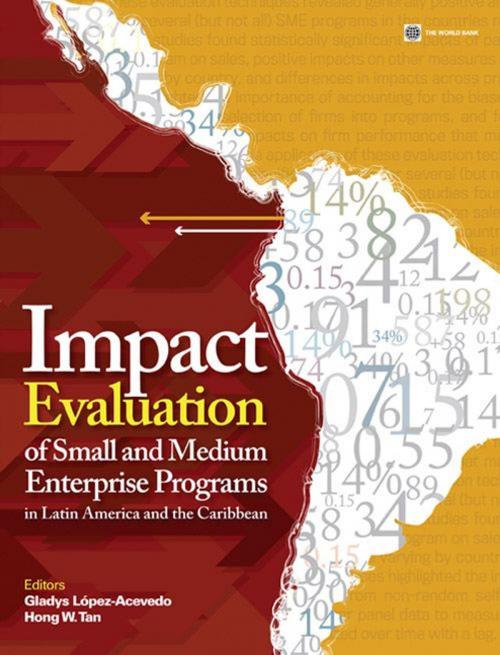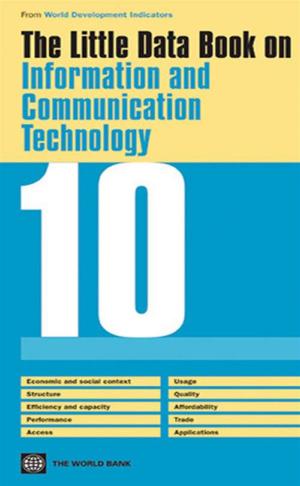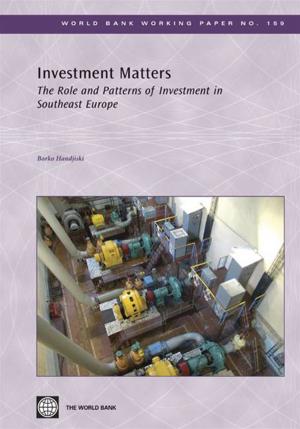Impact Evaluation of Small and Medium Enterprise Programs in Latin America and the Caribbean
Business & Finance, Economics, Development & Growth| Author: | López-Acevedo, Gladys; Tan, Hong W. | ISBN: | 9780821387764 |
| Publisher: | World Bank | Publication: | April 29, 2011 |
| Imprint: | Language: | English |
| Author: | López-Acevedo, Gladys; Tan, Hong W. |
| ISBN: | 9780821387764 |
| Publisher: | World Bank |
| Publication: | April 29, 2011 |
| Imprint: | |
| Language: | English |
Small and medium enterprise (SME) support programs are a common feature of industrial policy in developing countries but one whose effectiveness is not well known. Governments are motivated to support SMEs both because they make up the majority of industrial enterprises and contribute substantially to GDP employment and earnings and because SMEs are thought to be weaker than their larger counterparts. Few governments however have evaluated their SME programs rigorously so there is little empirical basis for rational allocation of resources to the well performing programs. The paucity of empirical evidence from rigorous impact evaluations also presents problems for multi-lateral and bilateral donors in deciding whether or not to provide lending or aid for such policy interventions to promote SME development. This study rigorously evaluate SME programs in four Latin American countries to gain insights into which programs perform better than others and just as important why. These countries ? Mexico Chile Colombia and Peru ? cover a wide range of enterprise support programs including training innovation and technology upgrading quality control market development export promotion and network formation. Broadly comparable panel data on enterprises is used to investigate the net impacts of these SME interventions.
Small and medium enterprise (SME) support programs are a common feature of industrial policy in developing countries but one whose effectiveness is not well known. Governments are motivated to support SMEs both because they make up the majority of industrial enterprises and contribute substantially to GDP employment and earnings and because SMEs are thought to be weaker than their larger counterparts. Few governments however have evaluated their SME programs rigorously so there is little empirical basis for rational allocation of resources to the well performing programs. The paucity of empirical evidence from rigorous impact evaluations also presents problems for multi-lateral and bilateral donors in deciding whether or not to provide lending or aid for such policy interventions to promote SME development. This study rigorously evaluate SME programs in four Latin American countries to gain insights into which programs perform better than others and just as important why. These countries ? Mexico Chile Colombia and Peru ? cover a wide range of enterprise support programs including training innovation and technology upgrading quality control market development export promotion and network formation. Broadly comparable panel data on enterprises is used to investigate the net impacts of these SME interventions.















